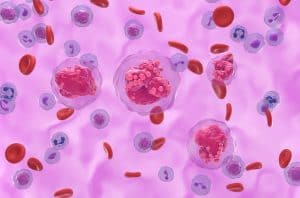
Interview: GSK’s subcutaneous formulation for Benlysta may help cut down hospital visits
pharmafile | June 22, 2016 | Feature | Research and Development | Benlysta, EULAR, Interview, Lupus, NICE, autoimmune diseases, drug trial
UK drugmaker GlaxoSmithKine (LSE: GSK) reported positive results for Benlysta following a late-stage study at the annual European Congress of Rheumatology to treat highly active systemic lupus erythematosus (SLE). The trial showed the therapy had a significantly greater response to treatment with Benlysta 200mg administered via subcutaneous injection in combination with standard care.
Professor Andrea Doria, abstract lead author, said: “Subcutaneous formulation has certain advantages over the intravenous formulation. The reason is the patients can administer it themselves and it is not necessary to go to the hospital for the intravenous administration.
“The disease impacts individuals aged between 20-24 years to 40 years, which is the most active population. So for the patients it is a great advantage to be able to avoid going to the hospital,” Professor Doria said in an interview with Pharmafocus.
High SLE disease activity is associated with symptom flares and a range of organ manifestations in lupus patients.
“One of the major challenges facing clinicians managing patients with SLE is to predict the disease course, as it fluctuates and varies greatly between individuals, from relatively benign to rapidly progressive and even fatal,” said Professor Doria.
“Research suggests that controlling this disease activity plays an important role in improving patient outcomes. The range of clinical benefits seen with Benlysta in this sub-set of patients with more active lupus provides valuable insights for clinicians about disease characteristics that may help inform the potential response to treatment and improve certain outcomes for patients living with this debilitating disease,” he added.
Benlysta is licensed in the European Union as an add-on therapy in adult patients with active autoantibody-positive SLE, with a high degree of disease activity, despite standard therapy.
Systemic lupus erythematosus (SLE) is the most common form of lupus, affecting about 70% of an estimated five million people with lupus worldwide. It is a chronic, incurable autoimmune disease producing autoantibodies that can attack almost any system in the body.
Nice recommends Benlysta to treat systemic lupus erythematosus
The National Institute for Health and Care Excellence has recommended GSK’s Benlysta to treat SLE.
The reviewing committee, however, felt there was not enough data for a firm calculation of the clinical and cost effectiveness of the drug compared to treatments already used on the NHS. As a result, Nice has recommended belimumab on the condition that NHS England and GSK work together to collect further data which addresses uncertainties about the efficacy of the drug.
Belimumab is a human monoclonal antibody that inhibits the activity of B‑lymphocyte stimulator (BLyS). Belimumab has a marketing authorisation as add-on therapy in adult patients with active, autoantibody-positive systemic lupus erythematosus with a high degree of disease activity.
Anjali Shukla
Related Content

NICE recommends migraine treatment for NHS use
The National Institute for Health and Care Excellence (NICE) has shared draft guidance recommending AbbVie’s …

GSK’s Jemperli recommended by NICE for endometrial cancer treatment
GSK has announced that the National Institute for Health and Care Excellence (NICE) has recommended …

NICE recommends SC treatment of AbbVie’s Tepkinly for patients with DLBCL
AbbVie has announced that the National Institute for Health and Care Excellence (NICE) has recommended …








